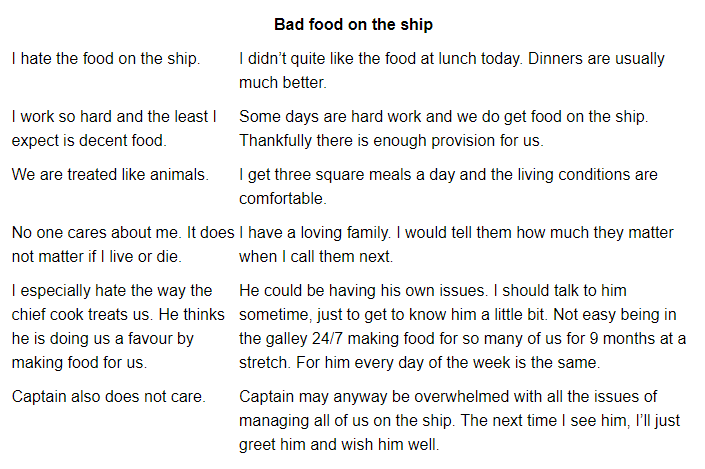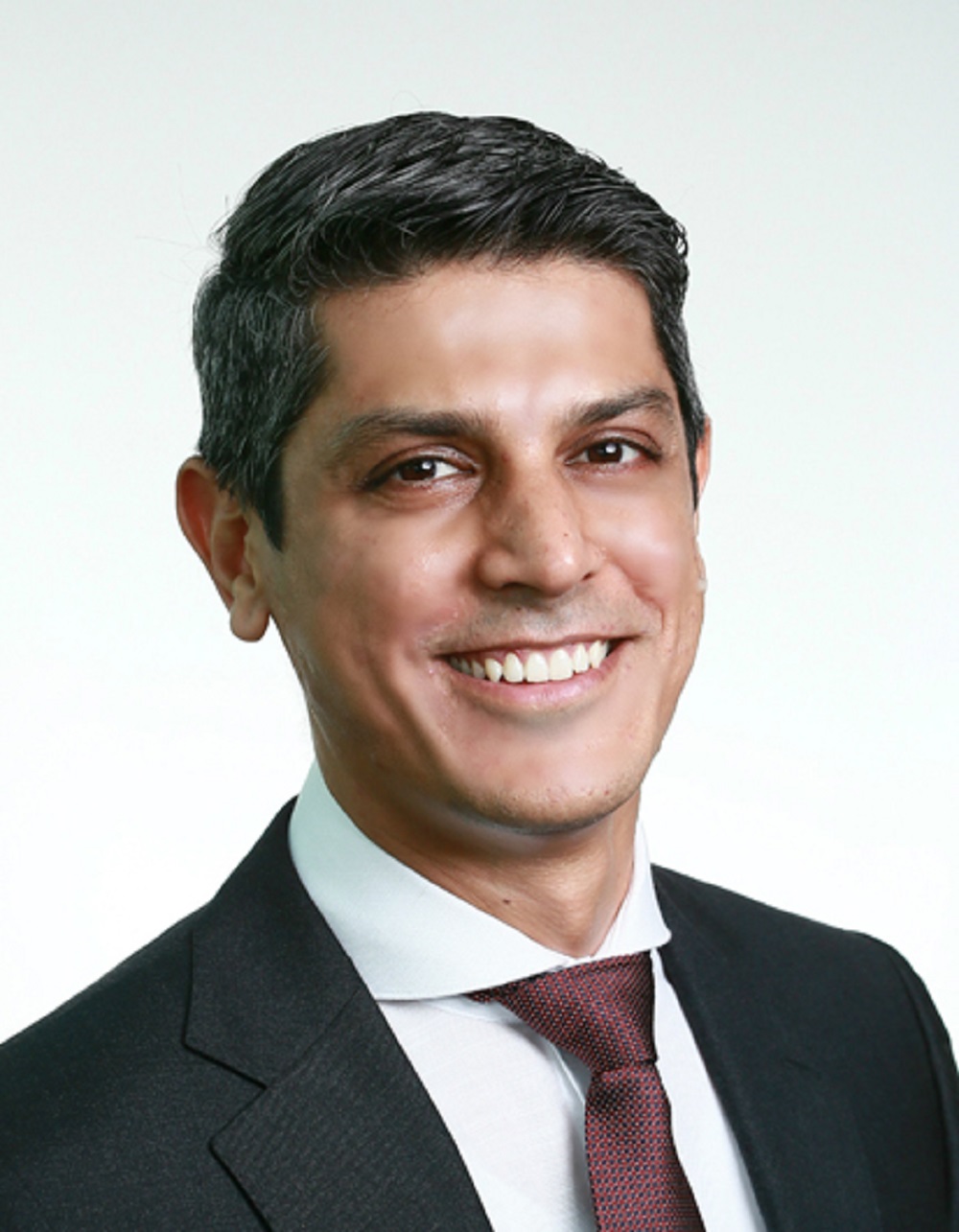
We are facing unprecedented worldwide lockdown and severe travel restrictions caused by the COVID-19 pandemic. Several thousand seafarers have been asked to extend their contracts beyond their usual tour of duty. Kunal Pathak, Loss Prevention Manager in Gard’s Singapore office, writes about maintaining the mental wellness of the seafarers during the current challenging times. Kunal is a Master Mariner and has particular insight into life at sea as he sailed for twelve years on oil tankers and bulk carriers.
Written by
Published 22 April 2020
Seafarers are no strangers to confinements. At times seafarers stay on board for their entire contract period with little to no possibility of shore leave. With very few crew members on board, the seafarers run a fully functional township making their own power, water, food, managing routine near misses and sometimes dealing with full-blown crises.
Life at sea requires mental resilience which most seafarers learn and get better at with experience. Every seafarer has his or her own coping mechanisms to deal with feelings of anxiety, loneliness, helplessness and depression. Seafarers just don’t talk about it because they have never been asked. It is only when their coping mechanisms are stressed beyond the breaking point we see cases of nervous breakdowns and mental illnesses being reported to our People Claims team.
The COVID-19 pandemic has presented another crisis. A rather lasting crisis, which is already showing an impact on the mental health of the seafarers, not only during their time on board the vessel, but also after their signoff. It does not have to be this way. This Insight is the fourth in our series focusing on seafarers’ mental health. The aim is to provide time tested psychological tools that can help seafarers, in collaboration with their managers ashore, to sustain mental health through these testing times.
Seafarers and their loved ones
A seafarer’s mental fatigue or stress is a direct result of the environment that he or she operates in. Traumatic events, from natural disasters to war, can damage mental health. The COVID-19 pandemic is no different. It has created huge uncertainty about every aspect of life. Like so many of us, seafarers fear for their own safety and also the safety of family and friends but those working aboard ships must endure these fears separated from their loved ones back at home.
I recently interviewed a seafarer who is currently on board a vessel. His contract was extended by three months and thereafter there was no further communication from the crewing managers. The seafarer had been on board for over ten months and the vessel is calling ports which have high COVID-19 infection rates. The seafarers on board his vessel were worried about their own health and equally anxious about the health of their families at home where the country is under strict lockdown.
I also talked to the spouse of another seafarer who was asked to extend his contract. His wife’s response was inspiring.
“At first when this news about restrictions on crew repatriation was released, I panicked. Our country had just imposed a nationwide lockdown and there was no way my husband could have returned home from the ship. I tried contacting the crewing managers and I received very vague and indifferent responses.
The panic from this news was my first reaction which lasted for about 24 hours. Thereafter, I started focussing my attention on what I can control. I have small kids and elders to take care of at home and I had to shift my focus from problems to solutions. My second response to the situation was more measured and it is helping me manage my home, and more importantly my thoughts.”
When asked about what advice she would give to other spouses who are facing a similar situation, she responded:
“We need to learn to help ourselves first before we can offer help or advise to others. Once this situation normalises, and it will normalise, we will know the people who we truly value the most.”
Are we listening?
The emotional or psychological plight of our seafarers can be broken down to three basic questions asked by every human being - Can you see us? Can you hear us? Do we really matter?
We want the seafarers to know that their voices have been heard. Several trade bodies are advocating for seafarers to be treated as key transport workers. One of the initial reactions within Gard came from our Chief Claims & Organisation Officer, Christen Guddal
“I envisage that more crew members may be requested to serve beyond their contractual period while naturally being concerned about their dear ones back home. Mental stress, anxiety and depressive thoughts may have a negative influence also on endurance and concentration while working. In Claims, we see this as a growing risk factor now.”
As part of our membership of the UN Global Compact’s Sustainable Ocean Business Action Platform, Gard serves on the COVID-19 Task Force on Global Risks and Responses. The Task Force has several key industry stakeholders including the International Association of Ports and Harbours (IAPH). Medical support to the crew on ships and routine crew changes are on top of the Task Force agenda.
With all the consistent efforts at various levels, we are seeing gradual improvement as some ports have now eased the restrictions on crew repatriation under cautious conditions. While this is far from business-as-usual the actions are positive, and the seafarers’ voices are being heard. The speed at which things return to normal is completely outside the control of any one individual or an organisation. What we can control is how we respond or react to the situation that we are in.
What can seafarers do to build resilience in times of stress?
For cases where the seafarers are suffering with brief periods of helplessness, let’s start on an individual level with how such feeling of helplessness can be “unlearned”. Let’s look at some simple, tried and tested techniques and routines that we can use to enhance mental resilience.
While these tools have been tested over time, none of these tools can help individuals suffering from severe cases of anxiety and depression. For such cases only a clinical psychologist or a psychiatrist can assist, and this is not an attempt to replace the professional advice that psychologists provide. To some extent, our Mental Health First Aid (MHFA) article by my colleague, Sandra Guiguet, could provide basic guidelines on how to approach severe cases until professional help is available.
Our circumstances influence our thoughts and our thoughts influence our behaviour which affects our mental and physical health. Through deliberate actions, we can intervene when our circumstances induce excessive negative thoughts.
1. One such psychological tool is to write down all your thoughts on the left side of a blank paper and the situation that is inducing those thoughts. Keep the right side of the paper blank as you will need to counter all those negative thoughts with positive ones.
While I was at sea, I used this technique. Here is an example about my personal response to what I considered to be bad food on board a ship.

Bad food on a ship
The left and right columns have contrasting emotions on the same issue. The reason for contrasting emotions is that two different systems of thoughts are at play. During such an exercise, an individual will be able to engage the primary reaction as well as a secondary response to the same situation. Going back to our discussion with the spouse of the seafarer, the spouse, by acknowledging her primary response of panic was able to negotiate more reasonable thoughts by engaging her secondary response. Renowned psychologist Daniel Kahneman (Nobel Prize in Economic Sciences) explains this phenomenon as ‘System 1’ and ‘System 2’ in his book, Thinking Fast and Slow. According to him, System 1 is instantaneous and is driven by instincts. System 2, is a slower process, driven by deliberation and logic. The engagement of System 2 may not be immediate and the individual may have to deliberate before System 2 engages.
Both systems are important and by doing the above exercise we would ensure that both systems engage, and we have a memory of the thoughts. Engagement of our secondary response can be learned. A person can realistically challenge his or her pessimistic explanatory style and to learn optimistic and rational explanatory skill. This would in turn reduce anxiety and depression and increase mental resilience.
2. For the second tool, we have referred to Prof. Martin Seligman’s work of positive psychology. Dr. Martin Seligman is a pioneer of Positive Psychology. He has been able to scientifically prove the theory on ‘why happy people are happy’. He is a leading authority in the fields of Positive Psychology, resilience, learned helplessness, depression, optimism and pessimism. According to Dr. Seligman it is not the absence of negative thoughts, but the presence of a positive thoughts that influence positive psychology. He spent many years to develop a theory of happiness. He uses the PERMA theory to explain the five-sided model of well-being. PERMA stands for Positive Emotion, Engagement, Relationships, Meaning and Accomplishment. More details on this theory can be found here.
Taking from Dr. Seligman’s personal experience, here is one way you can try to build positive thoughts:
Every night before going to sleep, write down three things that went well during the day and why they went well. These can be small or big things, it does not matter. You can write about the food or about your interaction with a fellow seafarer. You can also talk about your three best things with colleagues or your loved ones when you speak with them over the phone.
As rudimentary as this exercise sounds, positive psychology interventions have been through a gold standard of testing, that is, random assignment, placebo and control testing. Research suggests that remarkable things happened to people who practiced this ritual for 6 months. First, when you measure, people who start this exercise have more life satisfaction and markedly less depression. Second, and more interestingly, it is addictive. Dr. Seligman calls this a “three blessings exercise” and it helps us to remind ourselves of the good things that have happened instead of the unpleasant incidents that may have happened during the day. It also helps us in expressing gratitude.
The two tools mentioned here are important starting points to build mental resilience. The first tool is more about learning the two different ways in which our mind functions and the second tool is about gratitude. In one of the research studies, Dr. Seligman looked at 24 character strengths in a regression analysis to understand the best independent predictors of wellbeing. It was found that the only significant independent positive predictors of well-being were gratitude and love of learning. Some details of the study including the results of the regression analysis can be found in the beautiful minds.
We would again reiterate that the above suggested tools are to improve mental wellness and cannot to be applied when a person has had a nervous breakdown where only a professional can assist.
What can managers do to help?
In line with our recommendations published in our insight on Seafarers’ mental health and wellbeing by my colleague, Kristin Urdahl, here are a few ideas that may assist crewing managers and vessel operators to help their crew. The restrictions on crew repatriation will most definitely cause increased stress and anxiety which may lead to loss of sleep and increased fatigue. Gard conducts several ‘crisis response drills’ for members to understand their crisis response in a realistic scenario. Invariably all crisis teams place their people first when dealing with the casualty. The COVID-19 situation is no different from a crisis. A rather slow boiling prolonged crisis. This crisis will define the character of not only our organisation but the whole maritime industry in general. The big question now is - do we really put our people first?
According to one of the seafarers I spoke with, this is the time for the HSEQ managers, the DPA’s and Crewing managers to shine. This is the time they can “walk the talk”. Crewing managers need to provide accurate, relevant and factual information to the crew and keep in close and frequent contact with them. As important as it is for the crew to be well informed, it is equally important for the crewing managers to keep the next-of-kin informed of all the necessary precautions that the company is taking to protect their loved ones at sea.
One of the elements of Gard’s crisis drills is management of the next-of-kin during a casualty. We observe how the managers communicate with all the frantic calls made by the role playing next of kin for about 2 hours during the exercise. What we are looking for is empathy from the crewing department as they will have to deal with emotions of people who may have either lost their loved ones or are simply anxious for their well-being. The current pandemic situation demands the same level of care and empathy, not just for those at sea but also for their families back home. Simple calls with relevant information from the crewing managers to the family would be appreciated for years to come.
Conclusions
Rome wasn’t built in a day. An individual’s mental wellness as well as organisational cultures will need time and consistent efforts to build. Use the Japanese productivity philosophy of ‘Kaisen’, which basically means 1% improvement every day.
For the DPA’s, the fleet personnel directors, the fleet managers, the CEO’s, the Human resources, this is the time to shine and establish the legitimacy of your leadership.
Seafarer’s voices have been heard and there is already engagement at the UN level to have consistent policies to facilitate crew repatriation.
COVID-19 is an unprecedent crisis with a steep learning curve. Every crisis is followed by normalcy and the lessons learned now will be used in the years to come, both on the individual as well as the organisational level.
Use simple tools to improve mental resilience and enhance positive thoughts. Character and personalities are built one step at a time.
Finally, for the ship managers, when making the next call to the master on the ship, please ask, how have you been? And, just as important – listen with empathy to what the master says in reply.






